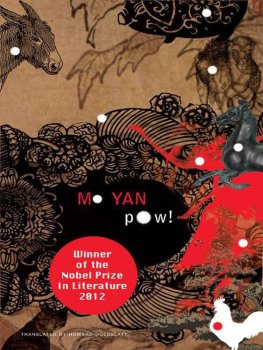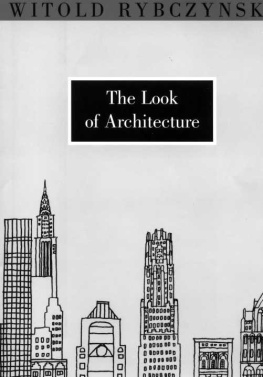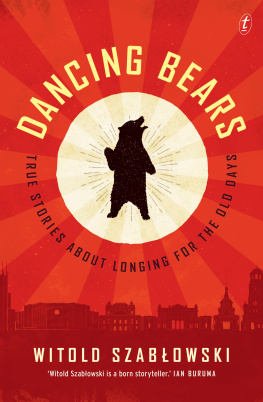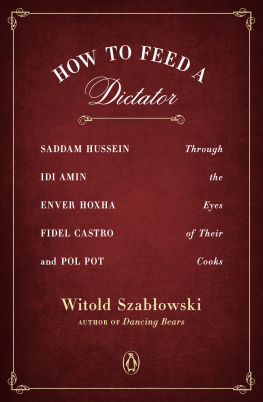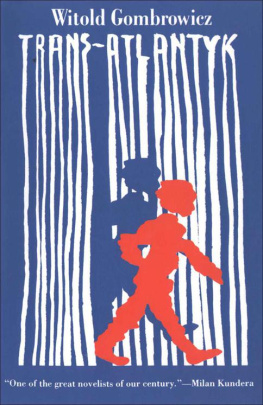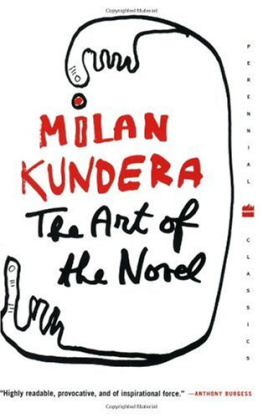
Cosmos
Witold Gombrowicz
Cosmos
Translated from the Polish
by Danuta Borchardt

Grove Press
New York
Copyright 2005 by Rita Gombrowicz.
Original Polish edition, published as Kosmos ,
copyright by Rita Gombrowicz
and Institut Littraire, copyright by
Wydawnictwo Literackie, Krakw, 1896, 1994.
Translation copyright 2005 by Danuta Borchardt.
All rights reserved. No part of this book may be reproduced in any form or by any electronic or mechanical means, including information storage and retrieval systems, without permission in writing from the publisher, except by a reviewer, who may quote brief passages in a review. Scanning, uploading, and electronic distribution of this book or the facilitation of such without the permission of the publisher is prohibited. Please purchase only authorized electronic editions, and do not participate in or encourage electronic piracy of copyrighted materials. Your support of the authors rights is appreciated. Any member of educational institutions wishing to photocopy part or all of the work for classroom use, or anthology, should send inquiries to Grove/Atlantic, Inc., 841 Broadway, New York, NY 10003 or .
Designed by Nancy Ovedovitz and set in
Minion type by Integrated Publishing Solutions.
Printed in the United States of America
Published simultaneously in Canada
ISBN: 9780802195265
Grove Press
an imprint of Grove/Atlantic, Inc.
841 Broadway
New York, NY 10003
Distributed by Publishers Group West
www.groveatlantic.com
11 12 13 14 1510 9 8 7 6 5 4 3 2 1
To my husband, Thom Lane, with gratitude for his support, both technical and personal, in the course of the translation
D.B.
Translators Note
W hen I read Cosmos many years ago, I thought how beautifully it would read in English. I translated a couple of chapters and submitted them to Professor Stanislaw Baraczak. I was diverted to translating Ferdydurke , Witold Gombrowiczs ground-breaking first novel. Now I have come back to Cosmos , for which Gombrowicz won the Editors International Prize for Literature, second in importance only to the Nobel Prize, in 1967. This is the first translation of Cosmos directly from the Polish.
Cosmos is now considered by some to be the most private of Gombrowiczs works. It is a starkly self-revealing work by the man who, in his TestamentConversations with Dominique de Roux , said about himself: I am a humorist, a clown, a tightrope walker, a provocateur , my works stand on their head to please, I am a circus, lyricism, poetry, terror, struggle, fun and gameswhat more do you want? This is what one faces in the process of translating his works, particularly Cosmos . The novel calls for empathy, focusing beyond the nitty-gritty of the narrative itself.
Gombrowiczs style has been described as mad, breathless, sometimes jerky, sometimes lazy. Imagine the task confronting the translator who must find the appropriate words in order to accomplish, in English, what Gombrowicz has set before us, and for which, in the end, he provided no solutiononly chicken fricassee for dinner.
Let me mention some of the dilemmas I encountered while translating this work.
Generally speaking, to convey the sense of the work (its characters, themes of darkness and obsessions) as it developed under his pen, Gombrowicz used long sentences, repetitions, lists of words, many of them without commas. I have left these elements unchanged.
Considering that departure from home is one of Gombrowiczs themes, the oscillation between the English house and homethe word in Polish, dom , being the same in both instancesrequired particular attention.
The words shame and embarrassment are in Polish one and the same word, wstyd . It was important to decide which of the two nuances Gombrowicz had in mind when talking about Lena and her cat. She was, I decided, ashamed of the cat.
In order to develop the onanistic theme of the book, Gombrowicz chose the Polish expression swoj do swego po swoje , which he used to convey a succession of meanings. Literally it means himself to his own for his own, and it refers to buying stuff from your own peoplea distant cousin to buy American, or, more personally, getting ones gratification from ones own. It first appears, innocently enough, in one of Fukss remarks as early as the second chapter of the book, and then, in the second half, it gathers momentum and gravity as Gombrowicz gives it self-gratifying, onanistic implications. It seemed necessary to use a progression of English expressionsfrom Fukss whatever turns you on, to Venomies her own self, just for herselfto achieve a satisfactory effect without violating the original text.
One of the central characters, Leon, uses many odd, even bizarre, inventions in his conversation. For example, he creates the nonexistent Polish word mlimli , which hints at milk. I thought that milkie was, linguistically and phonetically, an adequate transposition into English. Another example is Leons incorporation into certain words of the Latin um , which led me to such translation as miraculum miraculosum to convey his latinizing tendency. Another of Leons oddities was the word berg . It does not exist in the Polish language and I left it untranslated in the English. In its multiple permutations it occurs in Cosmos more than one hundred times, as a noun, a verb, an adverb, etc. Leon not only uses it as a masturbatory word but also gives it other, though related, meanings, some of which I translated as penal-berg, lovey-doveberg, pilgrimageberg.
While translating the initial passages about Ludwik and his hand, I had to be aware that these were the foreshadowing of things to come, and to adequately convey their significance in my translation.
Gombrowicz said, Cosmos for me, is black, first and foremost black, something like a black churning current full of whirls, stoppages, flood waters, a black water carrying lots of refuse, and there is man gazing at itgazing at it and swept up by ittrying to decipher, to understand and to bind it into some kind of a whole...
As the translator of Cosmos , I have the hope of having transmitted no more, no less than what Gombrowicz himself had given us.
D.B.
Cosmos
chapter 1
I ll tell you about another adventure thats even more strange...
Sweat, Fuks is walking, Im behind him, pant legs, heels, sand, were plodding on, plodding on, ruts, clods of dirt, glassy pebbles flashing, the glare, the heat humming, quivering, everything is black in the sunlight, cottages, fences, fields, woods, the road, this march, from where, what for, a lot could be said, actually I was worn out by my father and mother, by my family in general, I wanted to prepare for at least one of my exams and also to breathe in change, break loose, spend time someplace far away. I went to Zakopane, Im walking along the Krupwki, thinking about finding a cheap little boarding house, when I run into Fuks, his faded-blond, carroty mug, bug-eyed, his gaze smeared with apathy, but hes glad, and Im glad, how are you, what are you doing here, Im looking for a room, me too, I have an addresshe saysof a small country place where its cheaper because its far away, out in the sticks somewhere. So we go on, pant legs, heels in the sand, the road and the heat, I look down, the earth and the sand, pebbles sparkling, one two, one two, pant legs, heels, sweat, eyelids heavy from a sleepless night on the train, nothing but a rank-and-file trudging along. He stopped.
Lets rest.
How far is it?
Not far.
I looked around and saw whatever there was to see, and it was precisely what I didnt want to see because I had seen it so many times before: pines and fences, firs and cottages, weeds and grass, a ditch, footpaths and cabbage patches, fields and a chimney... the air... all glistening in the sun, yet black, the blackness of trees, the grayness of the soil, the earthy green of plants, everything rather black. A dog barked, Fuks turned into a thicket.
Next page

